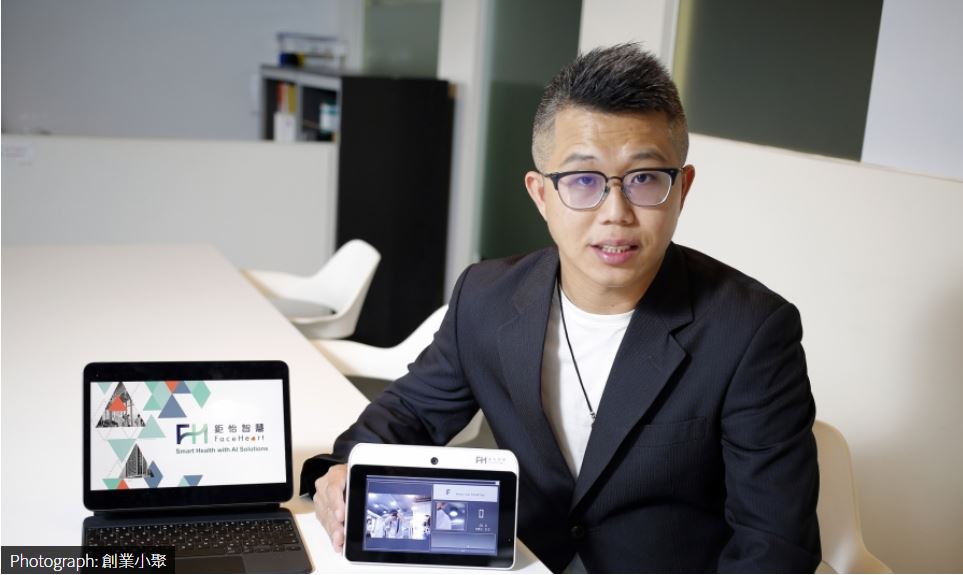Taiwan’s AI startup FaceHeart rebrands its core image recognition skill to fit into smart healthcare and smart fintech markets

In a year when social contact is limited to the greatest extent, FaceHeart's contactless solution comes at a good time. Its vision-based biosignal health management system, launched in 2019, detects heart rate, heart rate variability (HRV), blood pressure in real-time through a camera, in contrast to traditional health tools that require human assistance.
In addition to the medical sector, this Taiwan-based startup is 'killing two birds with one stone' as its contactless solution also serves as a fraud detection tool for the fintech sector.

Same algorithm, two markets
Because of Taiwan's rapidly aging population, FaceHeart's vision-based biosignal health management system is first designed to make the elderly's lives easier. The AI system analyzes capillaries' changes on a user's face and collects heart-related data without any physical contact within six seconds.
This technology relieves the discomfort of traditional wearable healthcare devices. It also provides more accurate data as the data collection is done without human interruption. Its reading precision reaches within three beats per minute, similar to the medical standards.
Most cameras in the current market can support the system. Even if the camera's resolution is low, it won't affect FaceHeart's biosignal identification process.
The system also has a recording function that runs 24 hours straight to support home care. Apart from the elderly, this can be used for baby monitoring and patients with particular diseases.
FaceHeart transitioned from a healthcare-only solution to a broader application in 2019. When FaceHeart received a series A funding from MediaTek, who considered the business a potential key player in the healthcare and fintech industries. Soon after the investment, Shanghai Commercial and Savings Bank announced a partnership with the company to repurpose the algorithm for use as a fraud detection tool. The collaboration and investment have led FaceHeart's value to an estimated NT$500 million (US$16 million).
Through heartbeat detection, facial recognition, and emotion detection, FaceHeart's software can help the bank inspect users' identity, prevent identity theft, and identify abnormal behaviors. Furthermore, the bank can deploy it to the Know Your Customer (KYC) verification process. The bank can weed out dummy accounts with face recognition.
The driving force behind Faceheart
Wong Chun Yin, general manager of FaceHeart, revealed that money-making has never been its main drive. Everyone on the team is motivated by two goals: first, to alleviate the heavy burden of medical staff; and second, to revive the startup scene in Taiwan.
Wong recalled that the startup scene at science parks in Taiwan was very vibrant 20 years ago. However, to this day, only TSMC and MediaTek are recognized by the public and outstanding graduates.
He added that schools should seek partnerships with companies to push good technology forward to the market. The profits should return to the school, hence, building a self-sufficient ecosystem.
Looking forward, FaceHeart aims to scale up algorithm development, adding two functions to its detection algorithm. It also seeks to partner with camera manufacturers to develop new solid hardware, offering flexibility for consumers and corporates.
In the long term, Faceheart plans to continue investing its technology into medical sectors and to develop a new AI tool that can perform disease risk assessments.
〔Original :Meet Startup @ TW〕
https://meet.bnext.com.tw/intl/articles/view/46937